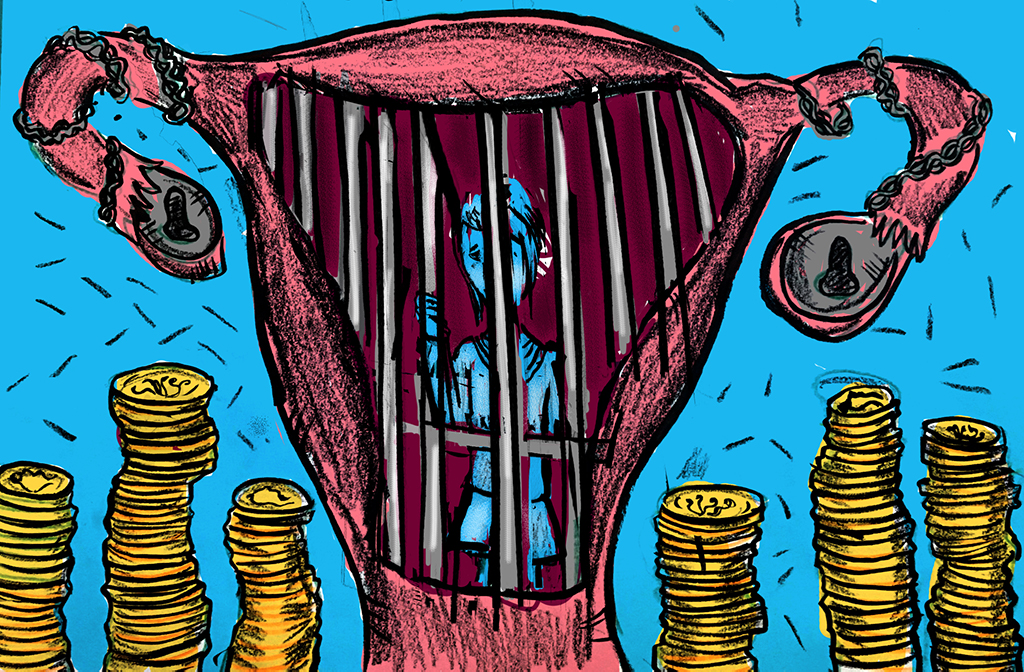From home working to health and safety, the economic disruption of Covid-19 has forced many businesses to overhaul their workplace practices. As bosses go back to the drawing board, they must consider how they can help tackle one of the longest standing stigmas: menstruation. Periods at work
A work environment should be a professional and comfortable space – be it an open-plan office, a coffee shop, an operating theatre or, as is now increasingly common, your own home. But, despite women’s employment rate reaching a record high at the end of last year, periods continue to remain taboo. Too many workers – women, trans, intersex and non-binary, among others – are still left feeling uncomfortable due to this age-old stigma.
A 2019 study found that one third of male workers think it’s ‘unprofessional’ to discuss anything to do with periods in the workplace. It also found the women polled would rather admit to a mistake at work, or speak in public, than talk about their period in front of male co-workers. Meanwhile, more than half of the people in the study said they would be reluctant to call in sick because of period related symptoms, and 48% said they would be hesitant to talk about it with their manager.
Employers are increasingly putting in place menopause policies to offer their staff comfort and flexibility. There are some similarities in menopause symptoms and period pain – such as sleep problems, low energy and hot flushes. So why do few, if any, businesses have a policy for menstruation? Or a joint policy for both?
Intimate healthcare brand Intimina is believed to be the first UK company to introduce new HR policies based on its employee’s menstrual cycles. The company will provide Menstrual Care Days for their colleagues, the option to work flexi-mornings and the offer of free eco-friendly menstrual care allowances for individuals.
Manuela Donetto, Intimina UK HR Manager, said: “We believe it’s important every woman feels empowered not just on their period but throughout their whole menstrual cycle, which is why we have introduced this new policy to help ensure our teams can take advantage of the many positive side effects that our periods bring.
“For too long premenstrual symptoms are looked upon negatively by women and we want to help encourage them to embrace and take charge of the way their bodies work by offering a flexi-working policy. In turn, we hope this will help increase productivity, happiness and satisfaction in the workplace,” Manuela continued.
A 2019 study published in the British Medical Journal found that 80.7% of 32,748 people reported an average of 23.2 days in a year of period-related “presenteeism” – where workers are on the job but, because of illness, not fully functioning. If workplaces catered for periods more – such as offering more flexible hours, free sanitary products, adjusting their work chairs or providing heat pads – it could not only boost morale and workers welfare, but likely cut down sick days and increase the business’ productivity.
Zoe David, who works for charity Marie Curie, suggested that this taboo is a “generational thing” and attitudes are improving.
I leaked through my underwear and was crouching down due to period pains to the point where I had to go home
Zoe David
“In my old job, where I was surrounded by men, I leaked through my underwear and was crouching down due to period pains to the point where I had to go home,” she said. “I couldn’t even say the word ‘period’, so I told my boss that I had ‘womanly problems’ and he didn’t even want to acknowledge it, so he just sent me home.”
Her daughter, by contrast “doesn’t even think twice” about discussing her period openly.
Many have called for free supplies to make their periods at work easier. A survey by CIPD training specialist DPG shows that only 10% say their workplace provides free products and 62% say they don’t have access to sanitary products if they run out.

A 2019 study found that 80.7% of 32,748 women reported an average of 23.2 days in a year of period-related “presenteeism”. Credit: Unsplash.
One Welsh company that does provide them free of charge for their employees and customers is Big Moose Cafe. Employee Nadine Pinnock said: “The staff and customer toilets are stocked with free period products that we supply and get from a company that donates sanitary products to a person in need for each one they sell.”
The company is called ‘Hey Girls’ and it tackles period poverty by giving one pack of products for every pack that customers buy. Big Moose decided that for every free product that gets taken from their toilets, they will donate a pack to the homeless community.
The pandemic has drastically altered how we work. Office of National Statistics data shows that home working is becoming a way of life for many British workers, with almost 50% reporting working from home at some point in the seven days to 14 June.
This transition may offer some workers the greater comfort when it comes to menstruation – but it offers little help to those not afforded this luxury. Meanwhile, research suggests the economic disruption of the pandemic has led to workers becoming less open about their mental health amid fears they could lose their jobs.
What employers may benefit from is more support and understanding when it comes to menstruation. If you could provide more flexibility in working hours, make the office environment as comfortable as possible, provide free sanitary products or even just be open to conversation without judgement or embarrassment, it would make for a better workplace.
About ‘The Inspired Source’ Series
This pilot series is part of our work to amplify the voices of aspiring writers that are underrepresented in the media and marginalised by society. Each piece examines a human rights issue the author or their community is affected by and preferably have a position on how we might begin to address it. This is a brand new series, so we are likely to adapt and refine it as things progress. Find out more about the series and how to send us a pitch on this page.






